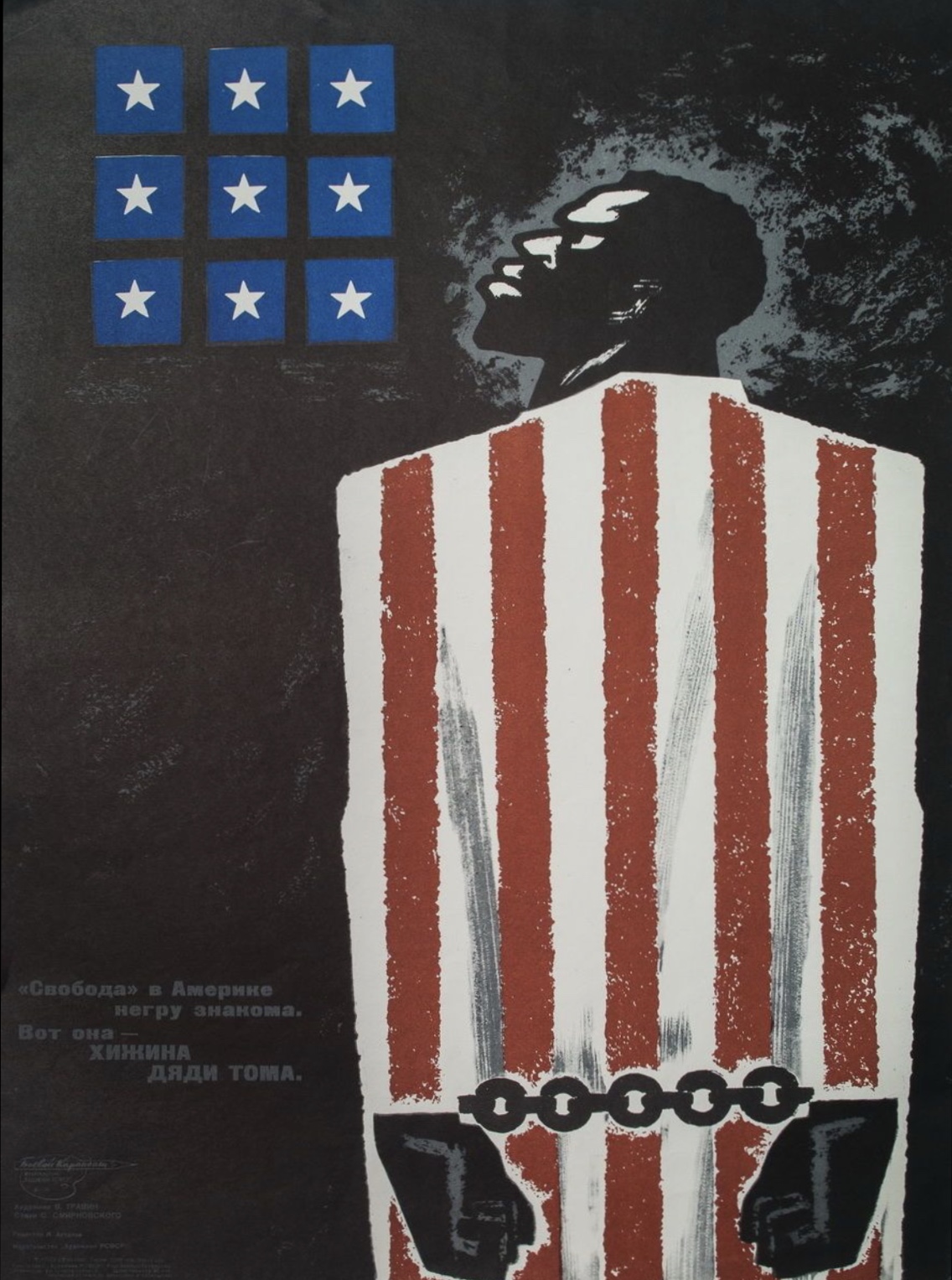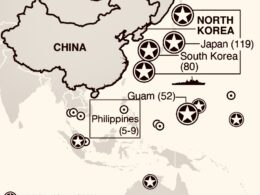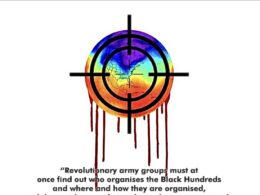The task of communists in what’s currently called the “United States” is unique, in that no previous socialist revolution has had to reckon with the particular combination of contradictions in our society. The U.S. is not just the most significant imperialist power in history, but a country which itself was created through imperialism exacted upon the Indigenous First Nations on this continent. An imperialism that’s ongoing, as the tribes continue to be deprived of the vast majority of their land by an occupier state which extracts their resources and builds capital on top of their territories. At the same time, the whites, despite all being settlers by definition, are for the most part either proletarians themselves or rendered too impoverished to be part of the working class. It also means that essentially all Americans, including the ones from the U.S. empire’s internal colonies, benefit (to widely varying degrees) from global imperialist extraction.
The country is a series of different contradictions stacked on top of each other, making for a population that, apart from the bourgeoisie and labor aristocracy which together make up a minority, is at different levels of exploiting and exploited. Essentially no U.S. citizen is completely innocent from the perspective of the billions of people who are exploited by imperialism, or who are targeted by imperialism’s violence. (The fact that I’m discussing Americans here is not because I in general seek to center the issue of imperialism around them; I’m only trying to analyze my own conditions.) Yet most of these Americans are at the same time being exploited, to at least some extent, by the bourgeoisie, with this exploitation being statistically more severe for those within the nationally, ethnically, and racially marginalized groups. Then there are the additional categories within these different societal elements, like the LGBT community, that are in themselves statistically poorer and more targeted by our ruling institutions than those with relatively more social protection from these kinds of misfortunes.
It’s crucial for us to properly analyze the contradictions within our society, because if we don’t, we’ll end up disregarding contradictions, or exaggerating certain contradictions to the effect that other contradictions are ignored, or even seeing contradictions that aren’t there. This type of mistake is made both by the class reductionists who deny that racial and national oppression needs to be addressed because these things will supposedly solve themselves if class inequality gets fixed; and the race reductionists who deny that the white proletariat as a whole has revolutionary potential simply because these whites are settlers. Or who, in the case of the real zealots, deny that someone can be proletarian simply because they don’t have enough melanin in their skin. I’ve seen the equivalent flawed analysis from anti-imperialists who believe that every U.S. worker is part of the labor aristocracy, when in actuality the U.S. labor aristocracy is a minority that’s been shrinking with the implementation of neoliberalism.
The assumption behind these kinds of perceptions is that because a person has one contradiction, this contradiction wholly defines them, regardless of the context that may exist surrounding their circumstances; like when an American worker technically benefits from imperialism yet sees most of the wealth created by their labor go into the hands of the bourgeoisie, or when a person of color has experienced marginalization because of their skin color yet has been able to rise to the status of the bourgeoisie. In an imperialist society, especially one that’s built on settler-colonialism, nobody is free from contradictions. So it’s unproductive to classify someone as nothing more than an oppressor when certain other contradictions may negatively impact them, or to say someone can’t possibly have any contradictions because certain contradictions negatively impact them.
These kinds of foolish conclusions are what Mao warned us to avoid in On Contradiction. He wrote that “in studying the particularity of any kind of contradiction–the contradiction in each form of motion of matter, the contradiction in each of its processes of development, the two aspects of the contradiction in each process, the contradiction at each stage of a process, and the two aspects of the contradiction at each stage–in studying the particularity of all these contradictions, we must not be subjective and arbitrary but must analyse it concretely. Without concrete analysis there can be no knowledge of the particularity of any contradiction. We must always remember Lenin’s words, the concrete analysis of concrete conditions.”
He was saying that we shouldn’t view something as wholly “bad” simply because a contradiction exists within it; it can have a contradiction, and still act as a progressive force which does more to advance history than to hold it back. Operation Z is being carried out by a capitalist state, yet within its historical context, it’s a revolutionary action, because it serves to give the Donbass republics reliable independence while weakening imperialism. Today’s Maoists and other ultra-leftists ironically don’t apply this reasoning to their geopolitical analyses, interpreting the existence of the contradictions within Russia and China as proof within themselves that these countries are imperialist. Which, in addition to being an inaccurate analysis of the economic character of these two powers, can lead to them not recognizing Operation Z as the progressive event that it is. They’ve failed to take into account the context which surrounds these contradictions, seeing contradictions as existing in a vacuum. And as therefore being grounds for viewing things or people in a simplified negative light, only because contradictions are present.
The question isn’t “does this thing have contradictions?” When it comes to our global conditions where capitalist markets are the dominant force, or to the conditions of the United States where society is built on all different kinds of exploitation, that question is already answered. Yes, of course contradictions are going to be present! The real question is “do these contradictions mean this thing is not revolutionary, or doesn’t have the potential to be revolutionary?” Once one starts thinking in these terms, contradictions become properly comprehensible.
In the case of someone like me, a white settler in the United States whose family is proletarian, this analysis framework is a way to recognize that the full return of jurisdiction to the tribes is not against my best interests, but in favor of them. The contradictions that I have, those being that I materially benefit from settler-colonialism and imperialism, become seen not as things I should hate myself for or things I should get defensive about, but simply realities about myself, no more and no less. The presence of these contradictions does not mean that I’m not negatively impacted by capitalism. In fact, due to the benefits that socialism would bring to people of all colors, I recognize socialism as in my material best interests, despite the end to my benefits from imperialism and colonialism which socialism would bring. Socialism would eliminate the countless sources of capitalist misery which afflict our daily lives, from car dependency (look at the high-speed rail systems of socialist countries), to lack of easy or viable access to healthcare, to worker exploitation.
The end of cheap consumables that imperialism currently brings to Americans would be a miniscule “loss” compared to the vast living standard gains socialism would provide, most of all because large-scale consumption itself will become no longer necessary under socialism. The people will be able to access what they need without having to constantly pay the bourgeoisie for these things, or go through polluting products that are designed to soon become obsolete.
The same goes for the question of land relations. My family owns no land, and neither do the vast majority of the other settlers. Our primary material interest does not hinge on whether the tribes continue to be deprived of jurisdiction over their land, that’s for the bourgeois landowners to worry about. If settler land relations were dismantled, that may mean the settlers would no longer be able to benefit from colonialism, but even for most settlers this “loss” will be trivial compared to the benefits which rectifying land relations will bring to all proletarians. These benefits being the prosperity and societal functionality that will come from socialism, which can’t happen without the colonial contradiction being adequately addressed. Failure to recognize this is why so many whites are unwilling to embrace class consciousness and decolonial solidarity, and instead embrace the fascist mindset that their best interests lie in fighting to preserve capitalism and colonialism.
Decolonial liberation deserves everyone’s support regardless, as it’s only in accordance with revolutionary morality that nations which have been stolen from get back what’s theirs. But supporting it is also crucial from the perspective of class struggle, because if Indigenous sovereignty and slavery reparations are disregarded by those who are supposed to represent the proletarian movement, then the proletarian movement will splinter and become ineffective. The colonized nations won’t unite behind the chauvinistic version of “socialism” that’s being predominantly peddled, and the people who aren’t driven away from communism will largely embrace a version of communism which is informed by reactive ultra-leftism, i.e. Maoism.
Right opportunism creatives ultra-leftism, because when politically developing people who are seeking out revolutionary politics witness right opportunism’s disregard for contradictions, they tend to react by aggressively embracing a crude series of contrarian positions relative to rightism. It turns into a contest for who can out-“left” one another, rather than a serious effort to investigate and analyze material reality. That’s how you get the kinds of Maoists who claim that semi-peripheral countries are actually imperialist, or that whites as a group lack revolutionary potential, or say the other things ultras say. It’s part of one big reaction to contradictions not getting adequately addressed.
Contradictions aren’t to be viewed in isolation, they’re to be viewed within their full context. That’s how someone can go through the kind of process towards class consciousness and national liberation solidarity which I just described within myself. If you have contradictions, and you aren’t part of the bourgeoisie itself, chances are that your material best interests still lie in helping address those contradictions, rather than in fighting to keep those contradictions from being addressed.
—————————————————————————
If you appreciate my work, I hope you become a one-time or regular donor to my Patreon account. Like most of us, I’m feeling the economic pinch during late-stage capitalism, and I need money to keep fighting for a new system that works for all of us. Go to my Patreon here.








